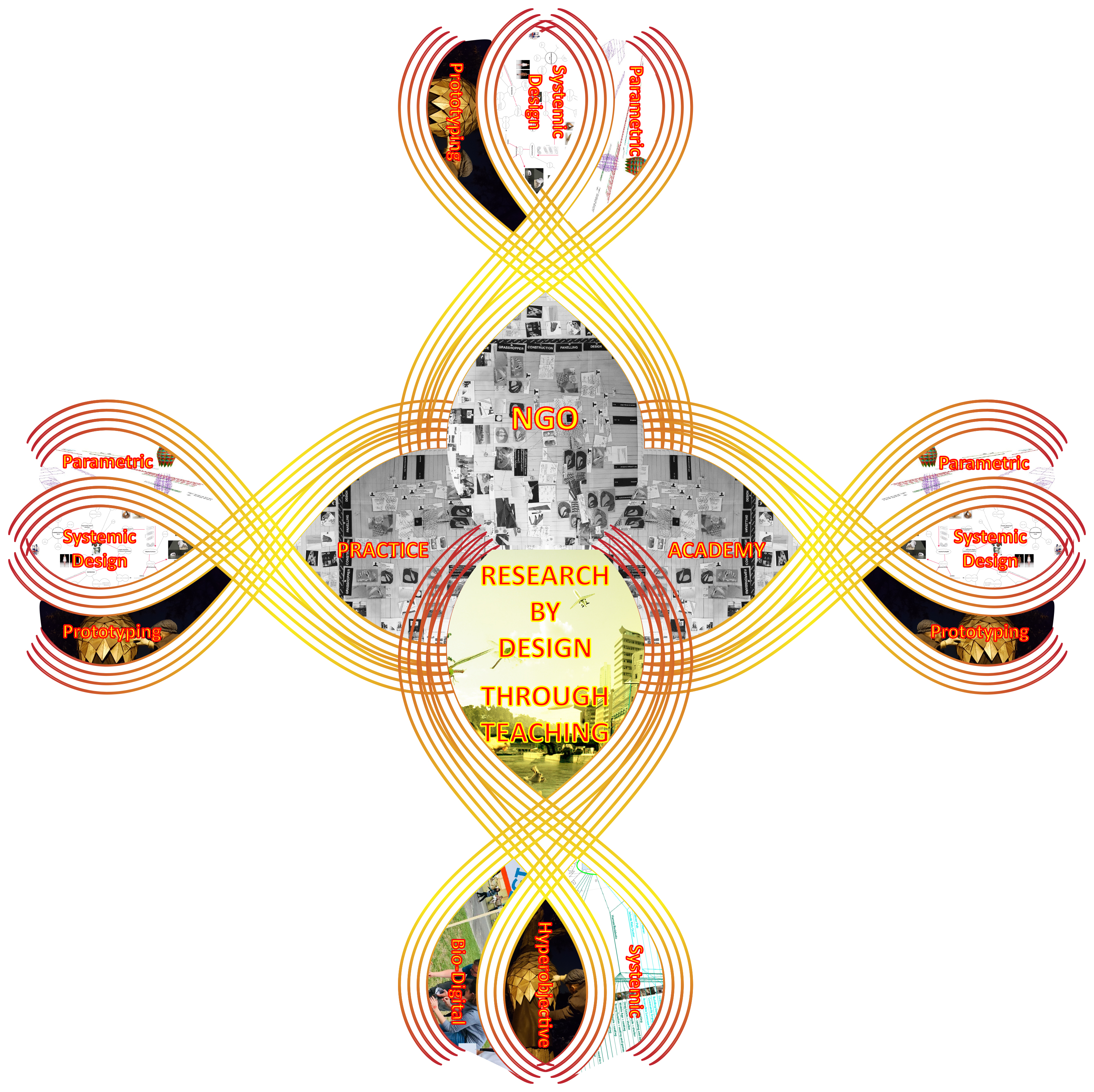Multicentred Systemic Design Pedagogy Through Real-Life Empathy
Integral and Inclusive Practice-Based Education in the Research-by-Design Context
DOI:
https://doi.org/10.7577/formakademisk.3755Sammendrag
This article reflects on my integral design studio teaching and inclusiveness in its design processes. This is exemplified in two different systemic design case studies focusing on social and environmental justice via the lens of empathy. The design studio and/or design practice tend to be fused in this article because my design studios have always focused on practice-based, real-life built projects, while my commercial and not-for-profit practices have always implemented design education in real-life built projects through internships and/or other student participation. Therefore, my approach fully follows the pathway of ‘learning by doing’(Dewey, 1997), focusing on systemic feedback looping of integral real-life experience and reflection through research and practice, targeting brighter post-Anthropocene futures.

Nedlastinger
Publisert
Hvordan referere
Utgave
Seksjon
Lisens
Opphavsrett 2020 Marie Davidova

Dette verket er lisensiert under Creative Commons Attribution-NoDerivatives 4.0 International License.
- Forfatteren(e) beholder sin opphavs- og kopieringsrett til eget manuskript, men gir tidsskriftet varig rett til 1) å fremføre manuskriptet for offentligheten i den opprinnelig publiserte digitale form, og 2) å registreres og siteres som første publisering av manuskriptet.
- Forfatteren må selv forvalte sine økonomiske kopieringsrettigheter overfor eventuell tredjepart.
- Tidsskriftet gir ingen økonomisk eller annen kompensasjon for innsendte bidrag, medmindre det er gjort særskilt avtale om dette med forfatteren(e).
- Tidsskriftet plikter å arkivere manuskriptet (inklusive metadata) i den opprinnelig publiserte digitale form, i minst ett dertil egnet åpent tilgjengelig langtidsarkiv for digitalt materiell, som for eksempel i de norske universitetenes institusjonsarkiv innen rammen av NORA-samarbeidet.
Verket vil bli publisert OpenAccess med en Creative Commons 4.0-lisens som tillater alle å lese, dele og tilpasse innholdet, også kommersielt, under lisensvilkårene:
Dette verket må tilskrives/ krediteres på riktig måte, en lenke må gis til CC-BY 4.0-lisensen, og endringer som er gjort må angis på en rimelig måte, men ikke på noen måte som antyder at lisensgiveren støtter deg eller din bruk.



